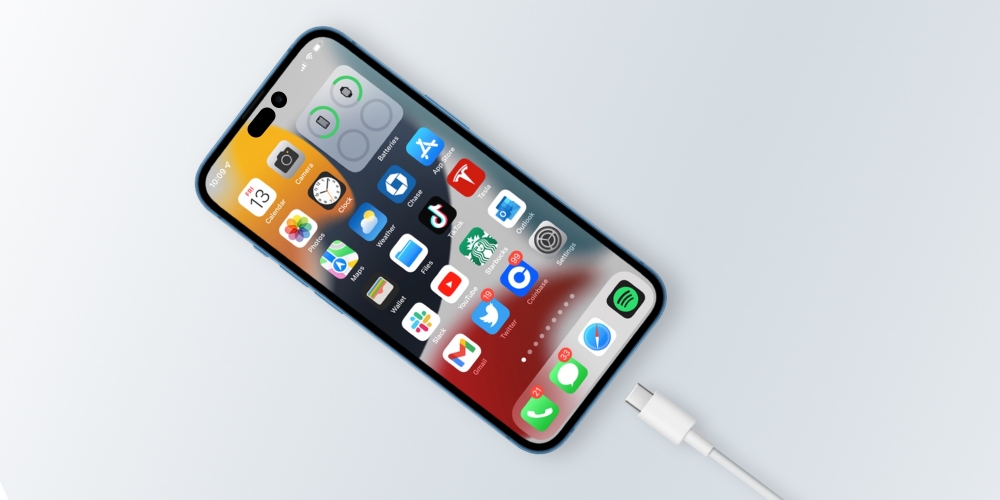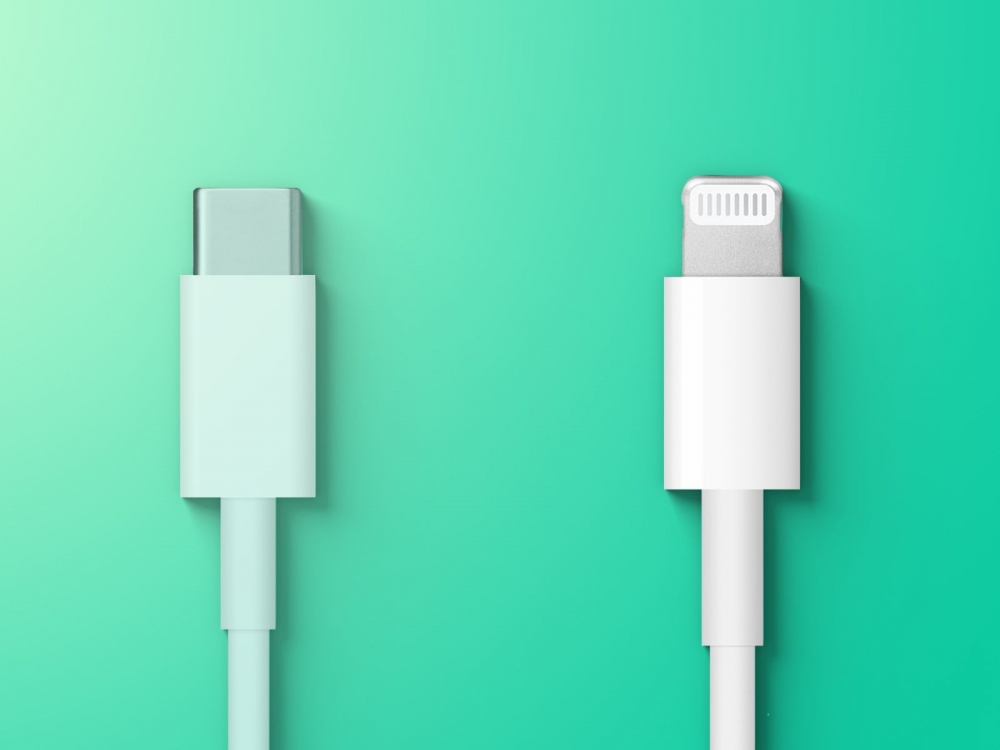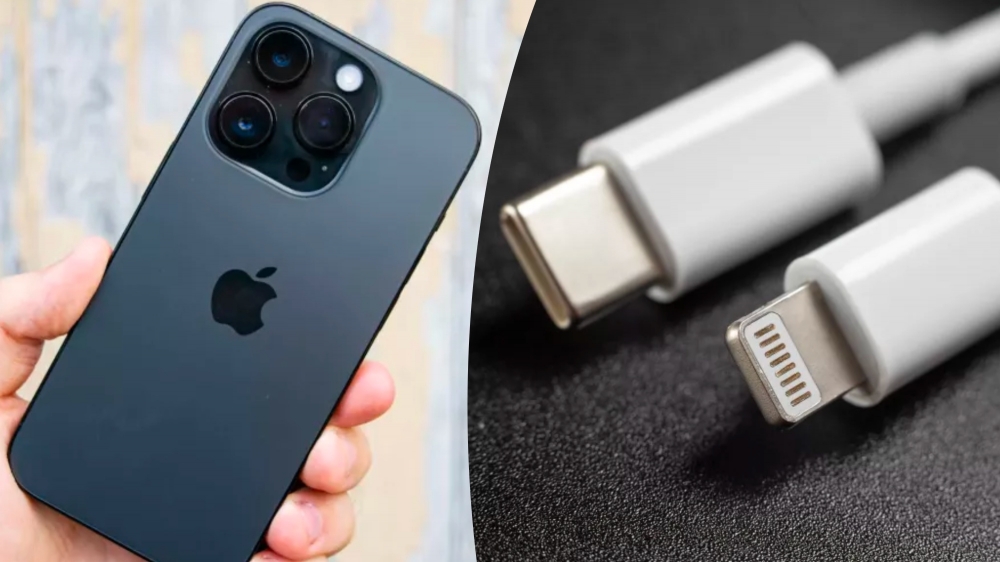Apple may limit USB-C on iPhone 15 to 'Made for iPhone' cables only
- Apple may adopt a custom integrated circuit (IC) interface for its iPhone's USB-C port for part authentication, like its Lightning port, according to recent reports.
- The IC chip could limit the functionality of non-Apple, non-MFi accessories and raise questions about the EU regulations' goal for USB-C as a universal interface.
- Rumors suggest the IC chip will be part of the USB-C port and charging cables for the iPhone 15 and 15 Pro, and Apple analyst Ming-Chi Kuo adds that the USB-C port will only be limited to USB 2.0 speeds on the iPhone 15 and 15 Plus.
- It's uncertain if the custom IC chip would impact the features of non-authentic accessories and if the EU would allow this move, but it aligns with Apple's history of customizing universal standards.
- As with any rumors, it's best to take this information with a pinch of salt, and the actual impact remains to be seen.
Apple is about to face a big change, as the EU regulations will soon force the tech giant to adopt the USB-C port for its iPhones. But, as per usual with Apple, it seems there is a twist in store. A new rumor originating from China has it that the company is planning on using a custom integrated circuit (IC) interface for the port. This would allow for the authentication of the parts involved in the connection, a move reminiscent of what Apple already does with its Lightning port.
 Image credit: 9to5mac
This built-in authentication process has caused some headaches for Apple users in the past. It pops up warnings when accessories are not made by Apple or part of its "Made for iPhone" licensing program. This side business has proven to be quite lucrative for the company. However, it remains to be seen if the custom IC chip would impact the functionality of non-Apple, non-MFi accessories. Features like fast charging and high-speed data transfer could be limited on non-authentic accessories. Although, it's doubtful the EU would allow this, since it would undermine the whole reason for USB-C being made a universal interface.
Image credit: 9to5mac
This built-in authentication process has caused some headaches for Apple users in the past. It pops up warnings when accessories are not made by Apple or part of its "Made for iPhone" licensing program. This side business has proven to be quite lucrative for the company. However, it remains to be seen if the custom IC chip would impact the functionality of non-Apple, non-MFi accessories. Features like fast charging and high-speed data transfer could be limited on non-authentic accessories. Although, it's doubtful the EU would allow this, since it would undermine the whole reason for USB-C being made a universal interface.
The rumor suggests that the new IC chip will be a part of the USB-C port and charging cables for the iPhone 15 and iPhone 15 Pro. This would effectively limit the functionality of unapproved accessories, as the chip would be similar to the Lightning authenticator chip. The rumor is said to come from an experienced integrated circuit expert who claims to have worked for Intel's Pentium processors for 25 years.
 Image credit: ChannelNews
While the implications of this move are unclear, it's possible that Apple could restrict certain features to Apple and MFi-certified cables, much like they did with their Lightning port. It's worth noting that Apple's current USB-C interface, used in the 10th-generation iPad and iPad Pro, does not contain an IC chip for authentication. This would mark the first time that Apple has offered this kind of port.
Image credit: ChannelNews
While the implications of this move are unclear, it's possible that Apple could restrict certain features to Apple and MFi-certified cables, much like they did with their Lightning port. It's worth noting that Apple's current USB-C interface, used in the 10th-generation iPad and iPad Pro, does not contain an IC chip for authentication. This would mark the first time that Apple has offered this kind of port.
 Image credit: Tom's Guide
All in all, it seems that the USB-C port adoption for the iPhones will bring some changes, but whether they will be significant or not remains to be seen. As with any rumor, it's best to take this information with a pinch of salt. But it certainly wouldn't be surprising if Apple took this step, given their history of customizing universal standards.
Image credit: Tom's Guide
All in all, it seems that the USB-C port adoption for the iPhones will bring some changes, but whether they will be significant or not remains to be seen. As with any rumor, it's best to take this information with a pinch of salt. But it certainly wouldn't be surprising if Apple took this step, given their history of customizing universal standards.
Recommended by the editors:
Thank you for visiting Apple Scoop! As a dedicated independent news organization, we strive to deliver the latest updates and in-depth journalism on everything Apple. Have insights or thoughts to share? Drop a comment below—our team actively engages with and responds to our community. Return to the home page.Published to Apple Scoop on 12th February, 2023.
No password required
A confirmation request will be delivered to the email address you provide. Once confirmed, your comment will be published. It's as simple as two clicks.
Your email address will not be published publicly. Additionally, we will not send you marketing emails unless you opt-in.